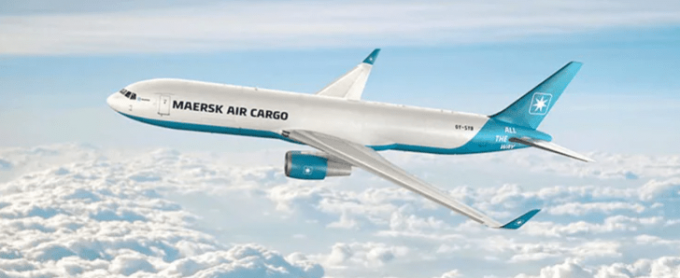Maersk optimism may just be to 'keep their spirits (and share price) up'
Maersk’s bullish full-year profit expectation has surprised stakeholders amid the heightened market uncertainty – but ...

The creation of Maersk Air Cargo, the shipping group’s airline borne of its existing integrator operator, Star Air, is the first step on what looks like a full-scale entry into the airfreight industry.
Hubbed at Billund Airport, Maersk Air Cargo will take over Star’s activities and ...

Comment on this article
Gary Ferrulli
April 08, 2022 at 3:28 pmMaersk had airplanes in the 70’s and 80’s for passengers, an adjunct to Maersk Travel.